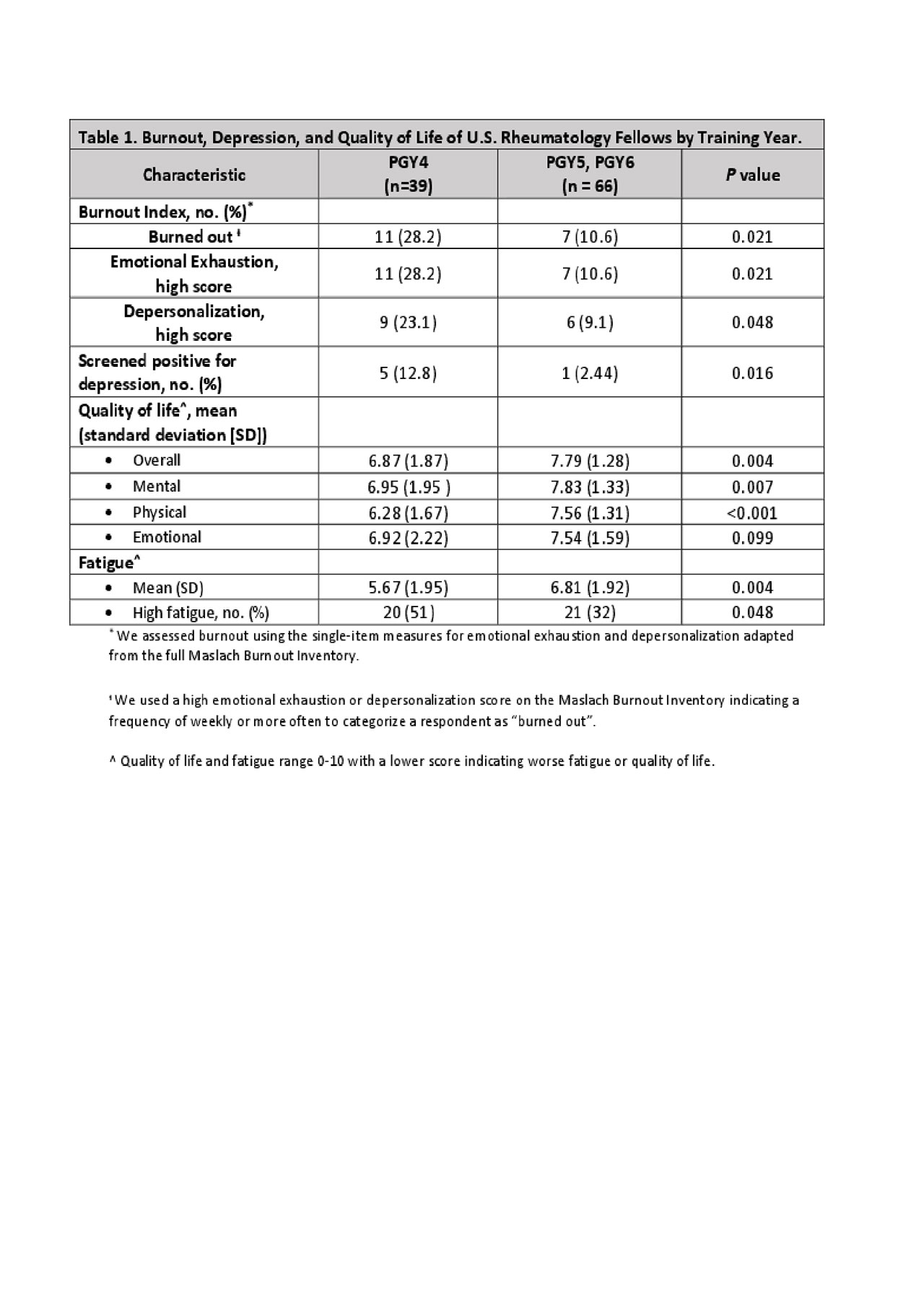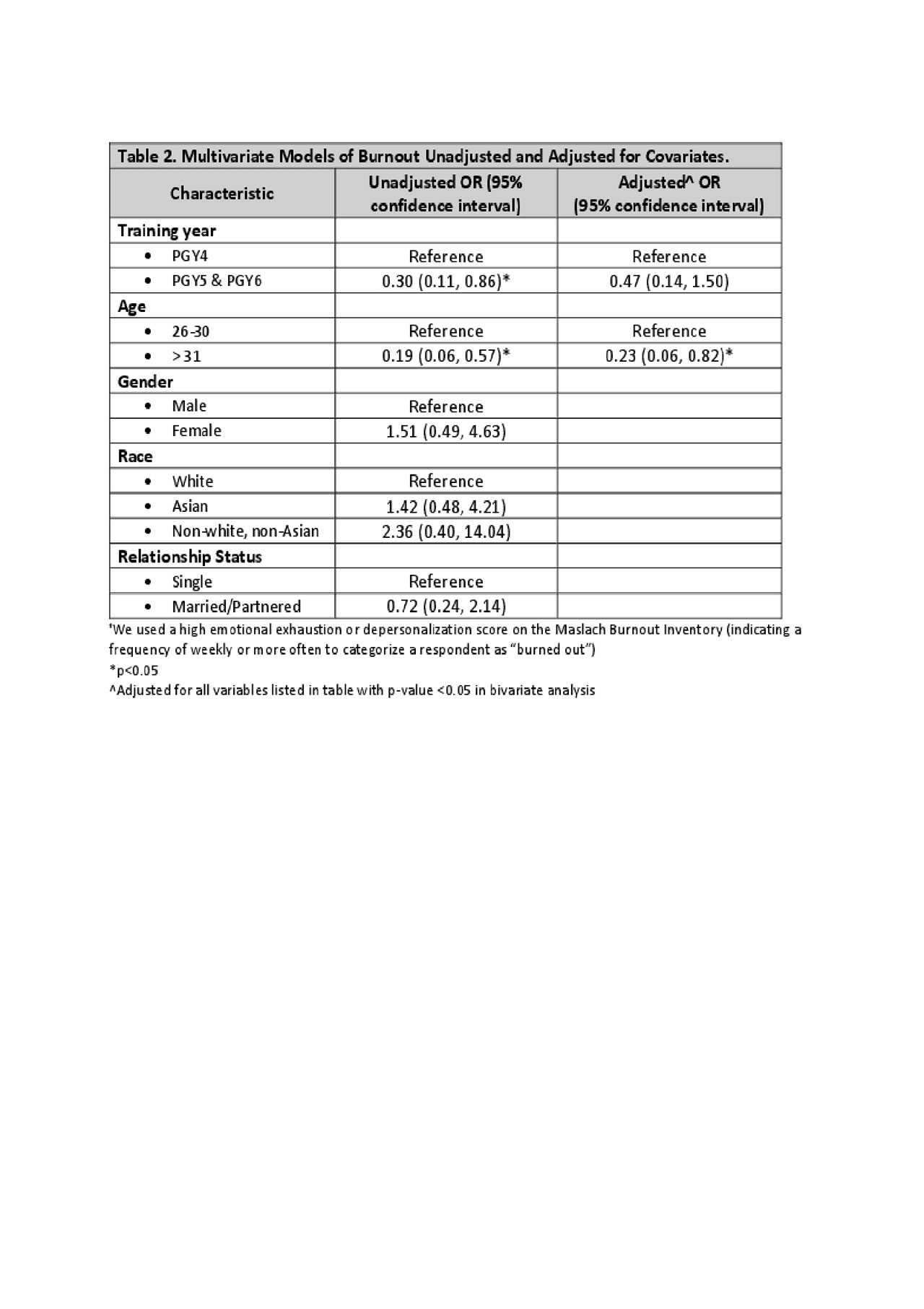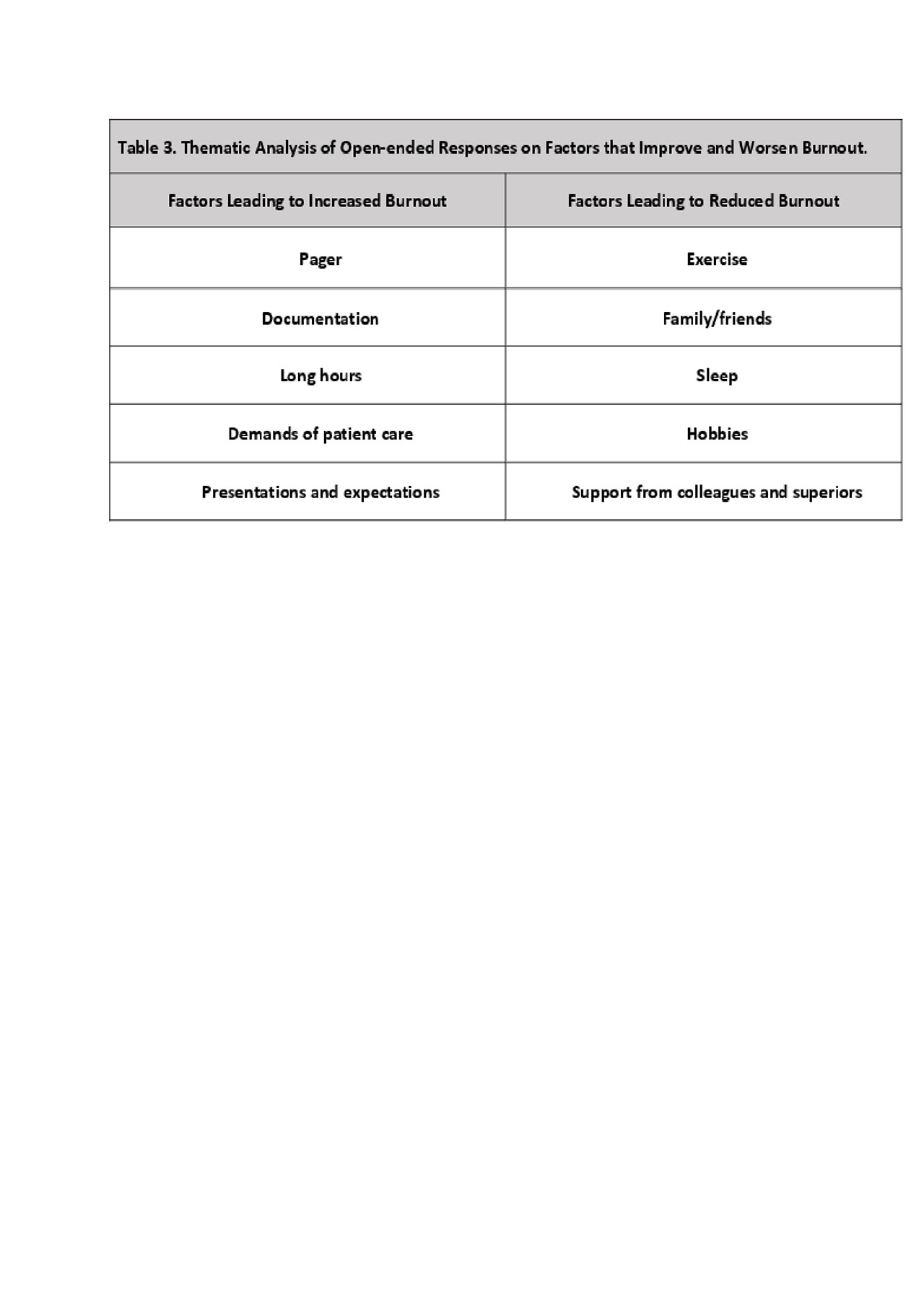Session Information
Date: Monday, November 11, 2019
Title: 4M089: Education (1794–1799)
Session Type: ACR Abstract Session
Session Time: 2:30PM-4:00PM
Background/Purpose: Physician and trainee retention is critical given the significant projected workforce shortage of rheumatologists. While previous studies have reported significant burnout among physicians and trainees as a whole, there have not been any national studies of burnout among rheumatology trainees. The objective of this study is to evaluate levels of burnout among U.S. rheumatology fellows.
Methods: This is a cross-sectional study of U.S. rheumatology fellows conducted anonymously via an electronic survey tool from January to February 2019. The survey was disseminated to fellows at ACGME-accredited adult and pediatric rheumatology programs via the ACR program directors’ listserv and ACR Fellows-In-Training Google group. Participants were given an incentive for participation in form of raffle of an Amazon gift card. Survey instruments included the Maslach Burnout Inventory (MBI) and the Patient Health Questionnaire 2 (PHQ2) to measure depression. We also measured burnout using the single-item measures for emotional exhaustion and depersonalization adapted from the full MBI. Measures of fatigue, quality of life, demographics (age, gender, ethnicity, marital status), and training year were also collected. We included open-ended questions about perceived factors to promote resiliency and reduce burnout and factors that worsen or lead to increased levels of burnout. Bivariate and multivariate regression analyses were used to examine correlates of burnout using STATA statistical software (STATA Corp. 2017). Open-ended responses were analyzed using thematic analysis.
Results: Response rate was 18.5% (105/567 total pediatric and adult rheumatology fellows) based on most recent data of trainees from 2017-2018. Survey responders were 64.8% female, 69.5% between 31-35 years, 59% white, and 61.9% married. When utilizing the MBI, 28.2% of PGY4 and 10.6% of PGY5/6 rheumatology fellows were found to have at least one symptom of burnout (p = 0.021). 12.8% of respondents in PGY4 year met criteria for depression compared with 2.4% in PGY5/6. In addition, PGY4 fellows reported worse fatigue and poorer quality of life compared with PGY5/6 (table 1). In multivariable models that controlled for training year and gender, higher age was associated with decreased odds of burnout (table 2). Additionally, PGY5/6 training year was associated with reduced odds of burnout in unadjusted models, but this effect was attenuated in adjusted models.
In thematic analysis of open-ended survey responses, participants identified factors to promote resilience and reduce burnout including: exercise, family/friends, sleep, support at work, and hobbies. Factors that contribute to burnout included pager, documentation, presentations/expectations, long hours, and demands of patient care.
Conclusion: This national survey of U.S. rheumatology fellows reveals that early trainee level and younger age are associated with worsened levels of fatigue, quality of life, and burnout. While awareness of and strategies to reduce burnout are needed for all fellows, targeted interventions for younger fellows and those in their first year of training may be of highest yield.
To cite this abstract in AMA style:
McGoldrick J, Molina-Ochoa D, Schwab P, Edwards S, Barton J. An Evaluation of Burnout Among U.S. Rheumatology Fellows: A National Survey [abstract]. Arthritis Rheumatol. 2019; 71 (suppl 10). https://acrabstracts.org/abstract/an-evaluation-of-burnout-among-u-s-rheumatology-fellows-a-national-survey/. Accessed .« Back to 2019 ACR/ARP Annual Meeting
ACR Meeting Abstracts - https://acrabstracts.org/abstract/an-evaluation-of-burnout-among-u-s-rheumatology-fellows-a-national-survey/



